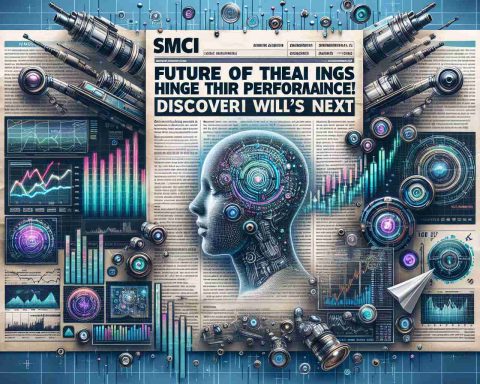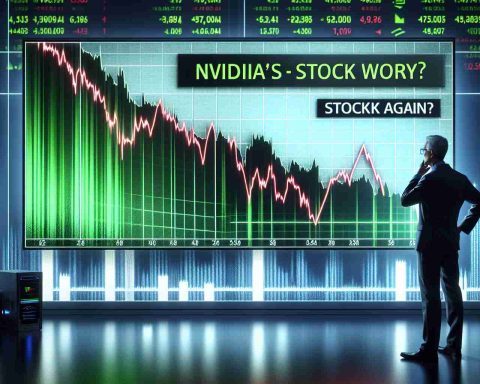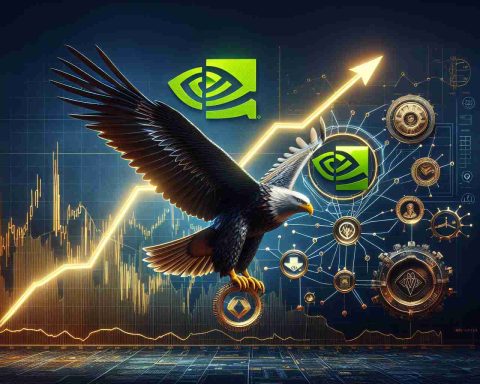The dynamic world of Exchange-Traded Funds (ETFs), particularly the Vanguard S&P 500 ETF (VOO), is witnessing an unprecedented shift as artificial intelligence (AI) begins to play a pivotal role in predicting daily price movements. Traditionally, VOO’s performance has been closely monitored by investors relying on historical data and market trends. However, the integration of AI into financial analytics is offering a fresh perspective that could redefine investment strategies.
AI-driven predictive analytics harness vast amounts of data, processing market trends, economic indicators, and even social media sentiment to forecast potential fluctuations in VOO’s daily pricing. By leveraging machine learning algorithms, financial analysts can now anticipate changes more accurately, allowing investors to make informed decisions ahead of time. This technological advancement provides a competitive edge, as traders can optimize their portfolios based on real-time insights rather than outdated metrics.
Furthermore, AI models can simulate multiple scenarios and assess risk factors with unparalleled precision. This innovation helps demystify the complexities of the stock market, making ETF investments accessible to a broader audience. Investors can manage their risk more effectively, reducing potential losses while enhancing profitability.
As AI continues to evolve, its influence on financial markets, particularly on ETF investments like VOO, is expected to grow. This new era of AI-enhanced trading could potentially democratize investing, allowing individual investors to compete alongside institutional giants, transforming the landscape of financial markets forever.
The Environmental and Human Impact of AI-Powered Financial Markets
The fusion of artificial intelligence (AI) with financial markets, exemplified by its role in predicting price movements for the Vanguard S&P 500 ETF (VOO), represents a monumental shift with far-reaching implications for the environment, humanity, and the global economy. While at first glance the integration of AI into stock market analytics appears to be a purely financial advancement, its ripple effects extend beyond the trading floor, influencing both societal structures and environmental sustainability.
The Environmental Impact
The employment of AI in the financial sector might seem unconnected to environmental issues; however, the implications are significant. Traditional financial analysis often requires extensive resources—data centers, human capital, and substantial energy consumption for computing processes. AI streamlines this by offering more efficient data processing capabilities, potentially reducing the carbon footprint associated with market analysis. It enables better allocation of resources and minimizes the environmental cost of maintaining outdated systems.
Moreover, AI can influence investment in environmentally conscious companies more prominently. By better predicting which industries will perform well, including those focusing on renewable energy and sustainability, AI can drive capital towards more Earth-friendly businesses. This could accelerate the transition to a greener economy, mitigating some of the impacts of climate change.
The Human and Economic Impact
On a societal level, the democratization of investing through AI has the potential to bridge socioeconomic gaps. By providing real-time insights and reducing entry barriers, individual investors can engage in financial markets with more confidence and less risk. This democratization could cultivate widespread economic literacy and potentially reduce wealth inequality, enabling broader swathes of the global population to benefit from stock market gains.
However, this shift also presents challenges. The disparity in access to AI technology and the skills required to utilize it effectively could reinforce existing inequalities. Moreover, the reliance on machine-driven predictions may lead to reduced human oversight, where decision-making processes fail to consider ethical implications that human analysts might address.
Future Implications
As AI continues to evolve, its influence is set to expand, intertwining the fates of technology, the global economy, and environmental outcomes. The future of humanity in this AI-driven era may hinge on how effectively we balance innovation with responsible stewardship. To avoid potential pitfalls, it will be crucial to foster inclusive policies that ensure equitable access to AI advancements and to maintain stringent ethical standards in AI deployment.
Ultimately, AI’s role in redefining investment strategies like those involving ETFs could lead to profound changes in how resources are allocated globally. If harnessed correctly, this could support sustainable growth, conserve environmental resources, and lay the groundwork for a more equitable global economy, thus shaping a future that benefits both people and the planet.
Harnessing AI in ETFs: Transformative Insights for the Vanguard S&P 500 ETF
The integration of artificial intelligence (AI) into the sphere of Exchange-Traded Funds (ETFs), particularly in the case of the Vanguard S&P 500 ETF (VOO), is ushering in a new era of investment strategies and market analysis. AI is not only enhancing predictive capabilities but also redefining the way investors, both individual and institutional, approach the dynamic world of ETFs.
AI-Driven Features Revolutionizing ETF Markets
AI technologies bring a multitude of new features to the investment landscape:
1. Enhanced Predictive Analytics: AI’s ability to process vast datasets, including market trends and social media sentiment, enables unprecedented accuracy in forecasting ETF price movements. This precision offers investors a competitive edge, transforming decision-making processes from reactionary to proactive.
2. Robust Risk Assessment: With AI, investors can simulate a variety of market scenarios and assess potential risks with exceptional accuracy. This capability allows for more robust risk management strategies, reducing exposure to potential losses while maximizing returns.
3. Real-Time Insights: Unlike traditional methods reliant on historical data, AI provides real-time market analysis. Investors can adjust their portfolios instantaneously based on current insights, staying ahead of market fluctuations.
Pros and Cons of AI in ETF Trading
Pros:
– Improved Decision Making: AI offers data-driven insights that help investors make informed decisions swiftly.
– Democratization of Investing: Access to sophisticated tools levels the playing field, allowing more individuals to invest effectively.
– Enhanced Accuracy: AI reduces the reliance on human emotions, which can skew trading strategies, leading to precision-driven outcomes.
Cons:
– Complexity: The integration of AI technologies requires a learning curve and understanding of sophisticated algorithms.
– Dependency on Data Quality: Poor data quality can lead to inaccurate predictions and, consequently, flawed investment strategies.
– Ethical Concerns: The potential for bias within AI algorithms could lead to unequal market advantages.
Innovations and Future Predictions
AI’s role in financial markets is expected to expand significantly over the coming years. The technology’s ability to learn and adapt continually will likely result in further innovations, transforming the landscape of ETF investments like VOO. Emerging trends suggest that:
– There will be a rise in AI-driven robo-advisors that cater to personalized investment strategies.
– Collaboration between AI firms and financial institutions will lead to advanced analytical tools, improving investor experiences.
– The continued evolution of AI may eradicate traditional trading barriers, further democratizing market participation.
Security Aspects and Ethical Considerations
Incorporating AI into ETF markets raises vital security and ethical considerations:
– Data Privacy: Ensuring the protection of sensitive financial data from breaches is paramount.
– Algorithmic Transparency: Investors demand clarity in how AI models make decisions to trust the system fully.
– Bias Identification: Continuous monitoring for bias in AI algorithms is necessary to prevent unfair market practices.
As AI becomes an integral player in the ETF domain, its capabilities in transforming market analysis and investment strategies cannot be overstated. Investors seeking to stay ahead in this rapidly evolving field must adapt to these cutting-edge tools to optimize their portfolios.
For more information on AI’s impact on finance or to explore innovative ETF solutions, consider visiting Vanguard.




















